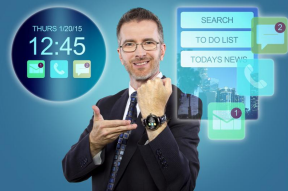Rockwell and Michael Jackson’s song from the 1980s “Somebody’s Watching Me” echoes through the walls as we approach the topic of Wearables. Wearables are an extension of our body to interact with machines on our behalf. It’s one step closer to being connected to the digital universe and one step away from having an embedded chip implanted under our skin bringing us to the ultimate global interconnectivity with digital information and machines. Presently, the wearables market is over a billion dollar industry, growing rapidly and a sector that should be on every lawyer or investigators radar.
Although you have to love a device such as the FitBit that assists in losing weight and maintaining a healthier lifestyle, the device knows “Every breath you take. Every move you make. Every bond you break. Every step you take (thanks Sting).” A competitive product to FitBit, Jawbone’s UP, showed its monitoring revealed that 93 percent of users in Napa, Sonoma, Vallejo and Fairfield, California woke up suddenly at 3:20am in response to an earthquake. They could further track that 45 percent of those tracked stayed up the rest of the night. Those private moments have now been transformed into a collective tracking effort that perhaps the user thought was created for personal use such as ensuring a naturopathic specialist could analyze sleeping habits for accelerating his or her metabolism. Wearable technologies such as Apple Watch and those mentioned above may know our geolocation, steps taken per day, heart rate activity, food intake, sleeping patterns and may even contain a video camera going tandem with our daily experiences. This information may be valuable for discovery in such cases as medical malpractice, workers compensation, family law, automotive insurance and other practical examples that we haven’t even envisioned due to how nascent the market is.
Given that we exist in a globally connected network, our biggest fear should be data breaches and the data security surrounding such devices (this may be why Google Glass was temporarily taken off the consumer market). On May 12, 2015, the Chinese army banned smartwatches/wearable tech over security issues. With the explosion of personal data available within wearables, it’s a data source that should be considered in computer forensics and electronic discovery matters. However, privacy and data security issues need to be carefully balanced as the laws have not caught up with technology in our industry sector. Hopefully, this article inspires some attorneys to focus on this area to ensure a safe Wearable world for a technology assisted healthier lifestyle or as Sam Cooke sang, “What a wonderful world this would be.”
